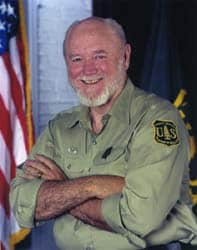Here’s the link and below is an excerpt. For those tracking what papers (local, regional, national) publish what articles, this is from the Denver Post.
The Northern New Mexico Stockman’s Association has sent a letter to Vilsack and a White House senior policy adviser in response to a federal review that shows the U.S. Forest Service in New Mexico and Colorado was not complying with several civil rights requirements, including policies aimed at helping people who speak limited English.
The review also found the agency was inconsistent in implementing policies and procedures, namely when it came to the termination or suspension of grazing permits.
“The issue of access to grazing permits is of vital importance to the minority Hispanic and Native American ranchers in Colorado and New Mexico and has long been a source of conflict with the (Forest Service) over complaints of discriminatory practices,” the ranchers told Vilsack in their letter dated Jan. 6.
The Forest Service did not directly address the lack of civil rights compliance or the ranchers’ claims of discrimination.
The USDA’s Office of Compliance, Policy, Training and Cultural Transformation conducted a review last spring, interviewing about 100 agency managers and employees and more than 135 permit holders.
The report states that civil rights training has fallen by the wayside for many employees and the training that does take place is largely ineffective. Also, the agency’s anti-discrimination statement was consistently omitted from key documents, including grazing permit applications, and there was no evidence that brochures or websites were offered in any other language than English.
Forest Service representatives are supposed to meet with ranchers to discuss annual operating plans. However, the report found that employees prepared the instructions and told the ranchers to “take it or leave it” with little or no discussion.
According to the report, ranchers told the reviewers that Forest Service staff uses “Gestapo” intimidation tactics, such as constant threats, suspension of permits, retaliation and discrimination.
Agency officials in Washington, D.C., said the compliance reviews are done each year.
“The Forest Service takes the recommendations in the programmatic review seriously and views this report as an opportunity to better serve its constituents,” spokesman Larry Chambers said.
The report, which was issued in June as an internal document and obtained by the ranchers six months after filing a public records request, stated that the Forest Service must develop a detailed corrective action plan within 60 days. It is unclear if that has been done.
The question in my mind is whether these are truly discriminatory or it is about Regulators and Regulated Not Getting Along. Like People Not Getting Along at Work, sometimes it’s really hard to tell if the root cause is discrimination or others of the many forces that cause difficulties among different people.



